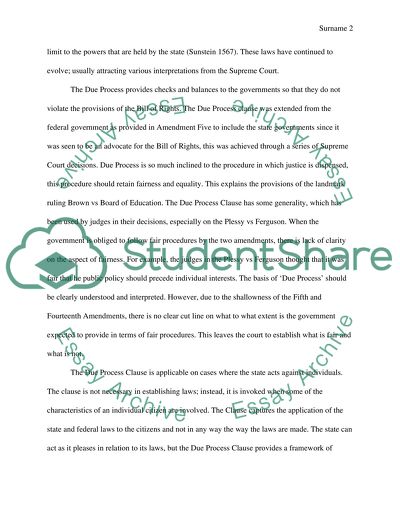Cite this document
(“Due process Essay Example | Topics and Well Written Essays - 1250 words”, n.d.)
Retrieved from https://studentshare.org/law/1636958-due-process
Retrieved from https://studentshare.org/law/1636958-due-process
(Due Process Essay Example | Topics and Well Written Essays - 1250 Words)
https://studentshare.org/law/1636958-due-process.
https://studentshare.org/law/1636958-due-process.
“Due Process Essay Example | Topics and Well Written Essays - 1250 Words”, n.d. https://studentshare.org/law/1636958-due-process.


